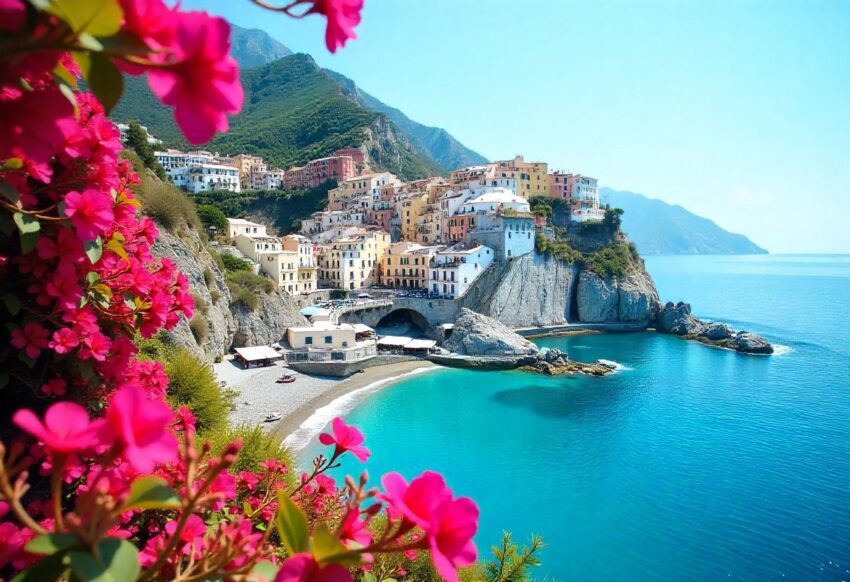Greece's Coastal Havens Descend Into Chaos As Illegal Sunbeds Multiply And Authorities Fail To Act On Massive Volume Of Beach Violations - Travel And Tour World
Saturday, July 19, 2025

Greece has an escalating coastal crisis as thousands of unlicensed sunbeds, beach bars and umbrellas clog the country’s public beaches without permits amid a lack of inspections and weak enforcement by local administrations. But despite more than forty-one thousand citizen complaints in the official MyCoast app in 2024, fewer than one in three of them led to an investigation, and law-breakers in more tourist-heavy areas like Halkidiki, the Dodecanese, and Eastern Attica got off scot-free all that summer. An audit has now uncovered widespread bureaucratic delays, scant municipal action and poor coordination among enforcement bodies that has allowed illegal beach takeovers to thrive and imperil public access to Greece’s most prized natural commodities just as its tourism season hits its stride.
A growing crisis is unfolding along Greece’s treasured coastline as thousands of unauthorized beach occupations remain unaddressed by authorities. Despite widespread public concern and the formal launch of a reporting platform, the majority of violations go unchecked, allowing businesses to illegally exploit public seafronts during the country’s most lucrative tourism months.
A recent audit has exposed deep flaws in how Greece’s beach concessions are monitored and enforced. The findings point to significant shortfalls in the inspection processes led by Real Estate Services and local municipalities, revealing a system that lacks the capacity, coordination, and urgency required to protect public access to coastal areas.
In 2024, citizens submitted an astounding 41,737 complaints via the official “MyCoast” app—developed to empower the public in reporting illegal beach activities. However, only 12,517 of these reports were actually inspected. This represents less than one-third of the total complaints submitted. From the inspected cases, 2,299 violations were confirmed, and subsequent legal actions were taken. Another 7,899 inspections resulted in findings of no infraction, while 2,319 cases were forwarded to other government bodies for further action. Alarmingly, 18,852 complaints—over 45%—have not been examined at all, and a further 10,368 remain under active review.
The majority of these complaints originated from ten key regions, with Halkidiki, Eastern Attica, and the Dodecanese standing out as major hotspots for illegal commercial use of beaches. In these areas, businesses have installed sunbeds, umbrellas, kiosks, and bars without appropriate permits or in excess of their legally designated space. The Court of Audit noted that 70% of total complaints involved unauthorized occupation of public beach areas.
Despite the high number of confirmed violations, enforcement has proven to be sluggish and ineffective. In many cases, businesses that received closure orders were later found operating freely during follow-up inspections. This trend was especially prevalent in September 2024, by which time summer tourism had already peaked, allowing unlicensed operators to profit throughout the entire season.
The audit also revealed that local municipalities played a limited role in enforcing the rules. Out of 14 municipalities reviewed, only six carried out beach inspections in 2023. That number rose slightly to nine in 2024, but still falls short of what is needed. Inspection reports provided by municipalities often lacked essential evidence such as photographs, GPS coordinates, or proper documentation of measurements. This incomplete data hindered follow-up action by Real Estate Services, which must rely on comprehensive evidence to confirm a violation and impose penalties.
Regional Real Estate Services were also found to be uncooperative in several key areas. Offices located in the Cyclades, Halkidiki, and the Dodecanese either failed to provide audit documentation or cited excessive workloads as justification for non-compliance with auditing procedures. In some cases, no explanation was given at all.
The delays are not limited to inspections. The Court of Audit found that certain demolitions of unauthorized beach structures have been pending for years. One case, flagged in the report, has remained unresolved since 2018. Fines and closure orders, although legally permitted, are rarely enforced quickly. Even when fines are issued, businesses often ignore them or delay payment with little consequence, further undermining the credibility of the enforcement process.
The report also noted the absence of integrated inspection teams. The law allows for the creation of joint units composed of officials from Real Estate Services, municipalities, tax authorities, and prosecutors. Yet these coordinated efforts are seldom formed, leaving enforcement fragmented and reactive instead of proactive and strategic.
This enforcement gap comes at a time when Greece’s beaches are more vital than ever to the national economy. Coastal destinations form the backbone of the country’s tourism sector, which is a primary contributor to GDP. Every summer, millions of visitors flock to Greece to enjoy its famed seaside charm, but the unchecked commercialization of these public spaces threatens to degrade the very assets that draw tourists in the first place.
The Court of Audit has issued a series of recommendations to address the shortcomings. These include prioritizing citizen complaints, making better use of geospatial and digital tools to track violations, and enforcing timely inspections and penalties. The establishment of cross-agency inspection teams is also being strongly advised to close the loopholes that currently allow violators to operate with impunity.
Until these measures are adopted and enforced consistently, the problem is expected to persist. Greece’s coastlines continue to face encroachment from unlicensed commercial activity, while public frustration grows. The lack of adequate oversight not only undermines the integrity of Greece’s environmental and tourism management but also erodes trust in public institutions.
Greece inundated by illegal beach takeovers People across the country are angry over these unlawful takeovers, with thousands of sunbeds and unlicensed businesses now filling public coastlines, as most Greek citizen appeals already went unheard of. Lax enforcement and delayed inspections have permitted widespread violations to flourish during the high-tourism season.
In another busy summer, time is running short to restore some order and accountability to the beaches of Greece. At the rate it’s going, the country risks having those most valuable natural resources hoarded for private profit and at the cost of its citizenry, and economy based on tourism.
You may also like...
Diddy's Legal Troubles & Racketeering Trial

Music mogul Sean 'Diddy' Combs was acquitted of sex trafficking and racketeering charges but convicted on transportation...
Thomas Partey Faces Rape & Sexual Assault Charges

Former Arsenal midfielder Thomas Partey has been formally charged with multiple counts of rape and sexual assault by UK ...
Nigeria Universities Changes Admission Policies

JAMB has clarified its admission policies, rectifying a student's status, reiterating the necessity of its Central Admis...
Ghana's Economic Reforms & Gold Sector Initiatives

Ghana is undertaking a comprehensive economic overhaul with President John Dramani Mahama's 24-Hour Economy and Accelera...
WAFCON 2024 African Women's Football Tournament

The 2024 Women's Africa Cup of Nations opened with thrilling matches, seeing Nigeria's Super Falcons secure a dominant 3...
Emergence & Dynamics of Nigeria's ADC Coalition

A new opposition coalition, led by the African Democratic Congress (ADC), is emerging to challenge President Bola Ahmed ...
Demise of Olubadan of Ibadanland
Oba Owolabi Olakulehin, the 43rd Olubadan of Ibadanland, has died at 90, concluding a life of distinguished service in t...
Death of Nigerian Goalkeeping Legend Peter Rufai

Nigerian football mourns the death of legendary Super Eagles goalkeeper Peter Rufai, who passed away at 61. Known as 'Do...






